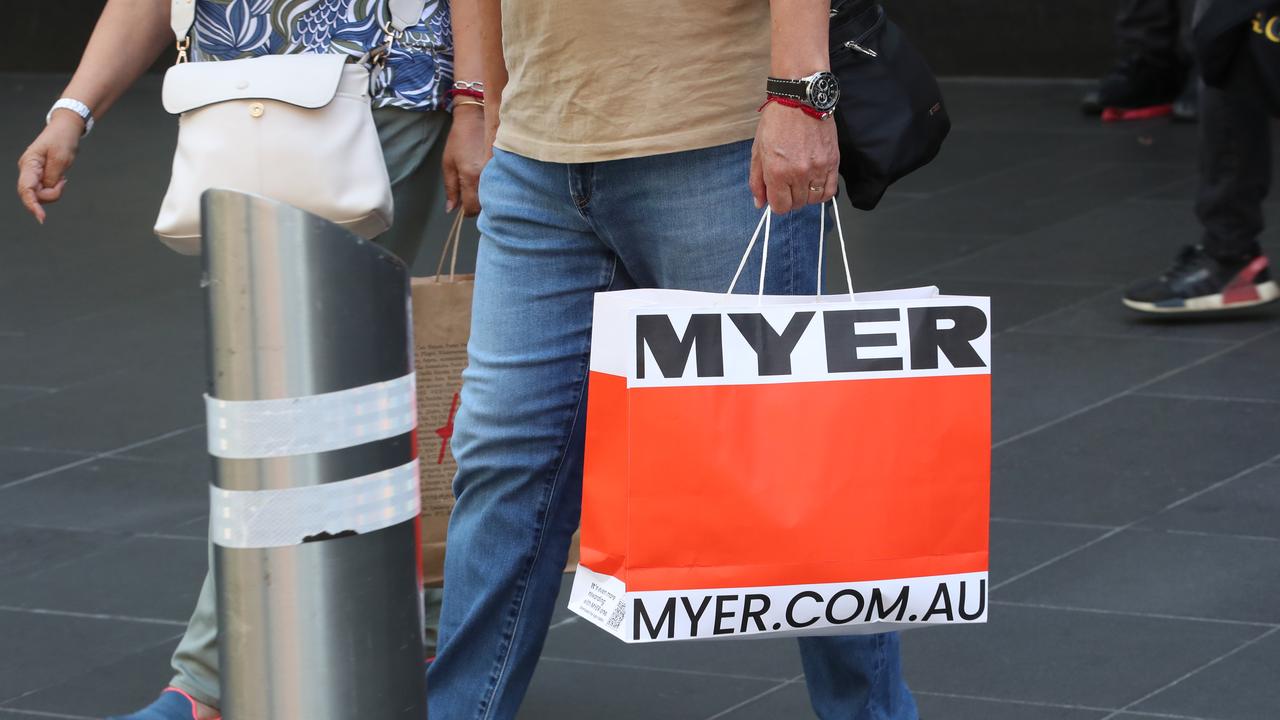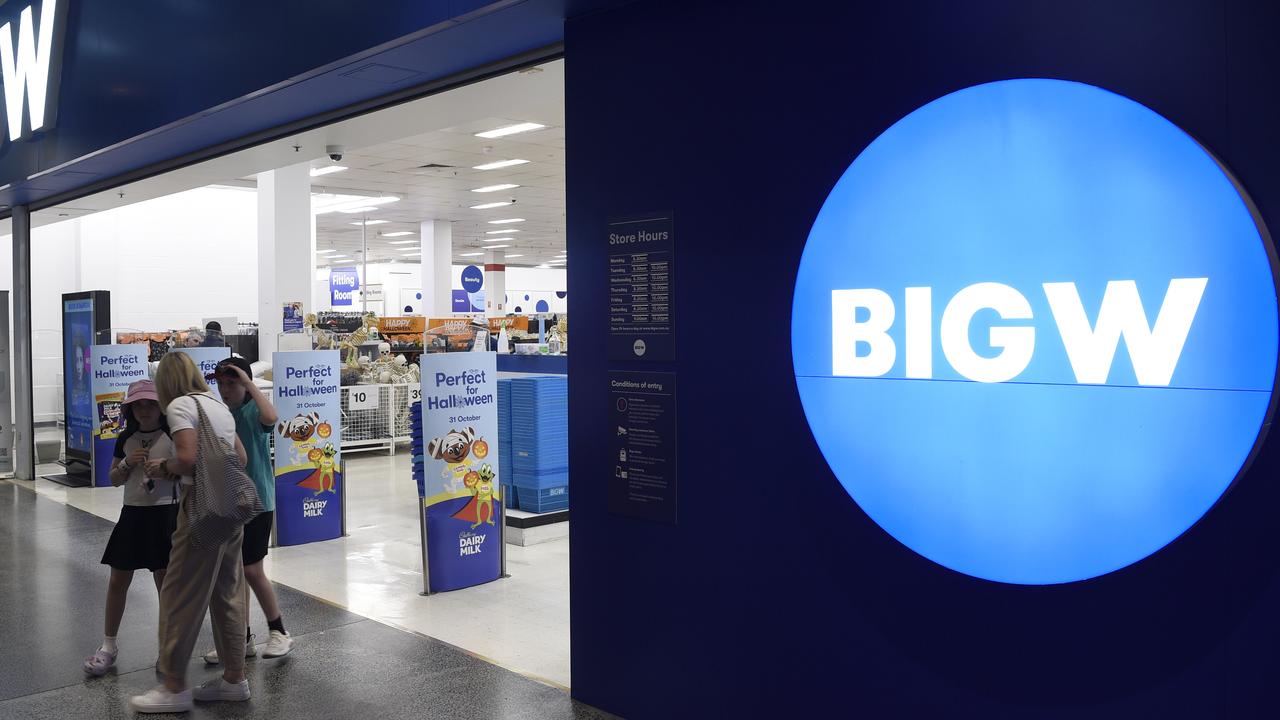Scandal-plagued Target facing three-year turnaround, expert warns
BE HONEST, when was the last time you went to Target? It’s been on a downward spiral and Aussies have fallen out of love.
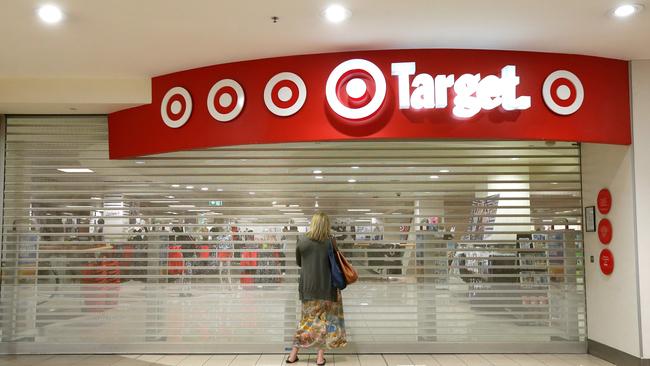
THOSE with long memories may recall the spectacular collapse of Albert J. Dunlap, a turnaround specialist and hatchet man dubbed ‘Chainsaw Al’ famed for sacking thousands of workers.
A star of 1990s corporate America, Dunlap came undone over his involvement in a massive accounting scandal at electronics maker Sunbeam, which he had been brought in to resurrect.
The New York Times reported that Sunbeam’s fortunes initially seemed to improve under Dunlap, taking a huge write-off in 1996 after closing plants and sacking workers, but reporting soaring profits in 1997.
In fact, Dunlap and his executives were using all sorts of creative accounting trickery to inflate earnings. The securities regulator at the time claimed that some $US62 million ($81 million) of Sunbeam’s $US189 million ($248 million) reported income “did not comply” with accounting rules.
Some expenses were wrongly charged in the previous year while inventory was artificially written down so the company could record large profits when the goods were sold.
And in what’s known as “channel stuffing”, Sunbeam put inventory onto the books of distributors and retailers. In one case, blankets that had been packaged for a certain retailer were sent to a distributor who agreed, for a guaranteed profit, to hold the blankets until the retailer was ready to accept them.
A similar kind of accounting scandal now is now gripping Wesfarmers-owned Target. It has already seen the exit of three executives, including managing director Stuart Machin.
Yesterday, Wesfarmers boss Richard Goyder described supplier arrangements that artificially boosted the company’s earnings as “mind-blowingly stupid”.
Under the scheme, rebates were arranged with 31 overseas suppliers for the first half of the 2016 financial year under the promise that Target would then pay them higher prices in the second half.
Target reported before-tax earnings of $74 million for the half, up 5.7 per cent from $70 million a year ago. However, its EBIT would have been $53 million if it wasn’t for the $21 million in income from the rebate arrangements.
While the numbers are insignificant on the overall bottom line of Wesfarmers’ $2 billion first-half earnings, the scandal is sending shock waves through the group.
A Wesfarmers spokesman told news.com.au the issue was “being handled” and there was “nothing more to add at this stage”.
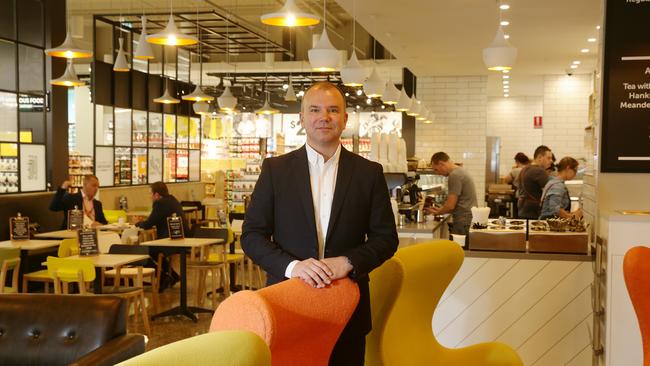
WHAT WENT WRONG?
Industry observers say the latest blow is the culmination of several years of poor management decisions and lack of leadership at the business, which has struggled to turn around declining profits at the same time discount chain Kmart has become a powerhouse under former McDonald’s chief executive Guy Russo.
The problem is simple: Target doesn’t know what it wants to be, and much like Big W, customers don’t know what it is anymore.
The problems can be traced all the way back to 2011, but insiders point to the departure of former chief financial officer Nicole Peck in late 2013 as a turning point.
Peck, a 20-year veteran of the company, left along with a number of other staff because the “culture was terrible”, according to one source. She now heads up finances at Just Group, owned by Solomon Lew’s Premier Investments.
In September 2011, Target boss Lorna Inman departed prematurely after running the company for seven years. In her final year the company Target posted a 27 per cent decline in before-tax earnings.
West Australian-born Dene Rogers was appointed in November 2011, having previously been chief executive of Sears Canada since 2006. Before that he was executive vice president and general manager of Sears-owned Kmart USA.
Rogers lasted just 18 months before he decided to leave for “personal reasons”, to be replaced by Machin, who had been director of store development and operations at Coles since August 2008, but had no proven leadership experience.
According to Geoff Dart, retail analyst with DGC Advisory, Target’s troubles began when it moved away from its “DNA” of value for money, family and quality into “cheap fashion”.
“They were neither one thing nor the other. They weren’t perceived as cheap and they weren’t perceived as fashion,” he said.
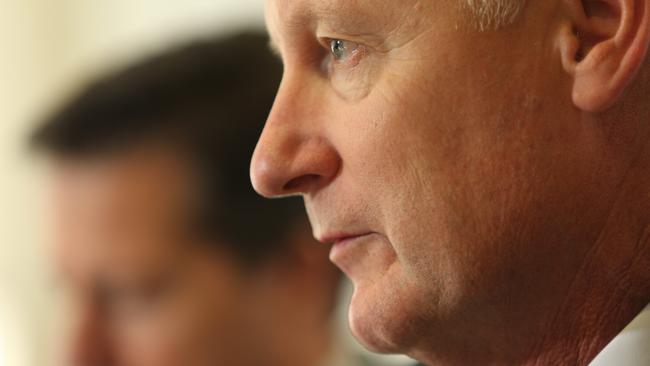
While Kmart has nailed the bottom end and Myer and David Jones compete in the premium space, Target has failed to properly deliver a mid-tier value proposition. “They need to drive a clear value proposition for mums, dads and families,” Mr Dart said.
He points to the introduction of the Target Essentials range during Dene Rogers’ tenure as a perfect example. “You can’t communicate a value proposition when you call a product an adjective normally used to describe a special offer,” he said.
Even worse, Rogers previously had a hand in another ‘Essentials’ failure when, in 2005, Sears attempted to launch a new brand called Sears Essentials out of renovated Kmart stores. The experiment was abandoned in 2006.
CAN TARGET TURN IT AROUND?
Mr Dart believes Russo, who was recently given control of both Target and Kmart, should have been made head of Wesfarmers’ department store business years ago.
At this point it could be a three-year job. “What nobody knows is how much brand damage has occurred, but I think there is enough consumer resonance with the brand to create a value proposition above Big W,” Mr Dart said.
“Consumers want Target to be successful. The demographics around Target are expectations of value for money and family. It’s not about having cheap rejected brands from Italy.”
But he warns the turnaround will require an overhaul of store layouts, product portfolio and pricing. That doesn’t necessarily mean raising prices, but giving consumers “good, better, best”.
In other words, stocking more of a premium range but offering a quality mid-price point. While Target currently stocks some premium ranges such as Sheridan, they’re not merchandised terribly well, he argues.
“Leadership is about building a competent and capable team and bringing your staff along,” Mr Dart said. “They’ve got some great people in there who want to see the business succeed. It’s just a tragedy to see great brands suffer the way they have.”
Speaking to the Herald Sun last month, Mr Russo said a retail leader must “look for the red, but also for the green”.
“I like a challenge,” he said.
“I want to remove some of the complexities and bring Target back to the 90-year-old brand that was the most popular stores in Australia.”
He said listening to staff would be crucial.
“Things will obviously be broken and you want to fix it. But take the time to listen. Because every time you see something that’s not right, fixing that doesn’t necessarily mean long-term success.”


